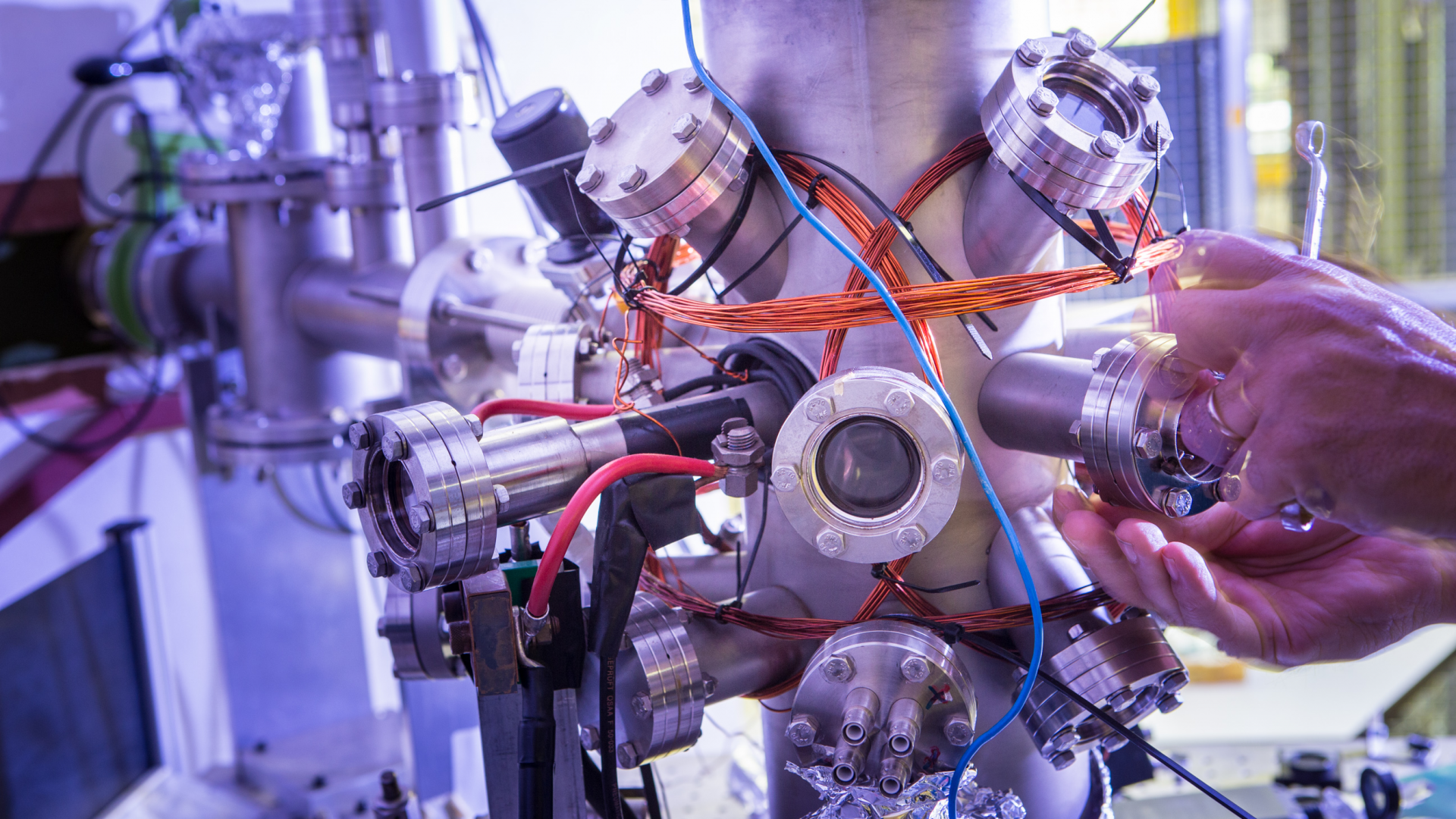
Group leader: Dr. John Sheil
Plasma Theory and Modeling
The Plasma Theory and Modeling group research the physics of laser-driven extreme ultraviolet (EUV) light source plasmas using a blend of analytical modeling and numerical simulations.

About
The source of extreme ultraviolet (EUV) radiation in new-generation EUV lithography machines is that of a hot and dense plasma (a “soup” of free electrons and ions). This plasma, which reaches temperatures above 400,000 degrees Celsius, is formed when a high-intensity laser pulse is focussed onto a tiny, micrometer-sized droplet of molten tin. Importantly, tin plasmas are an excellent source of EUV radiation, radiation which is exploited in EUV lithography machines to print nanometre-scale features on silicon wafers for integrated circuit production.
The modeling of laser-driven EUV light source plasmas is a multifaceted task, requiring the of coupling a huge number of physical processes over a wide range of timescales. Research on laser-driven EUV light source plasmas spans topics in atomic processes and radiation transport in plasmas, equation-of-state physics, plasma expansion dynamics as well as laser-induced hydrodynamic deformation of tin microdroplets. The Plasma Theory and Modeling group perform research in all of these areas, utilising a combination of analytic modeling and large-scale computer simulations. The goal of this research is to generate new, fundamental insights on laser-driven plasmas to accelerate the understanding and development of current and future laser-driven plasma sources of EUV light for nanolithography.
The Plasma Theory and Modeling group work closely with experimentalists in the EUV Plasma Processes and Ion Interactions groups at ARCNL. The group participate in a number of international collaborations with researchers at the Keldysh Institute of Applied Mathematics (Russia), Los Alamos National Laboratory (USA), Lawrence Livermore National Laboratory (USA), Princeton Plasma Physics Laboratory (USA) and the Max Planck Institute for Nuclear Physics (Germany).
Group leader John Sheil also has an appointment as an assistant professor at the Vrije Universiteit Amsterdam.








